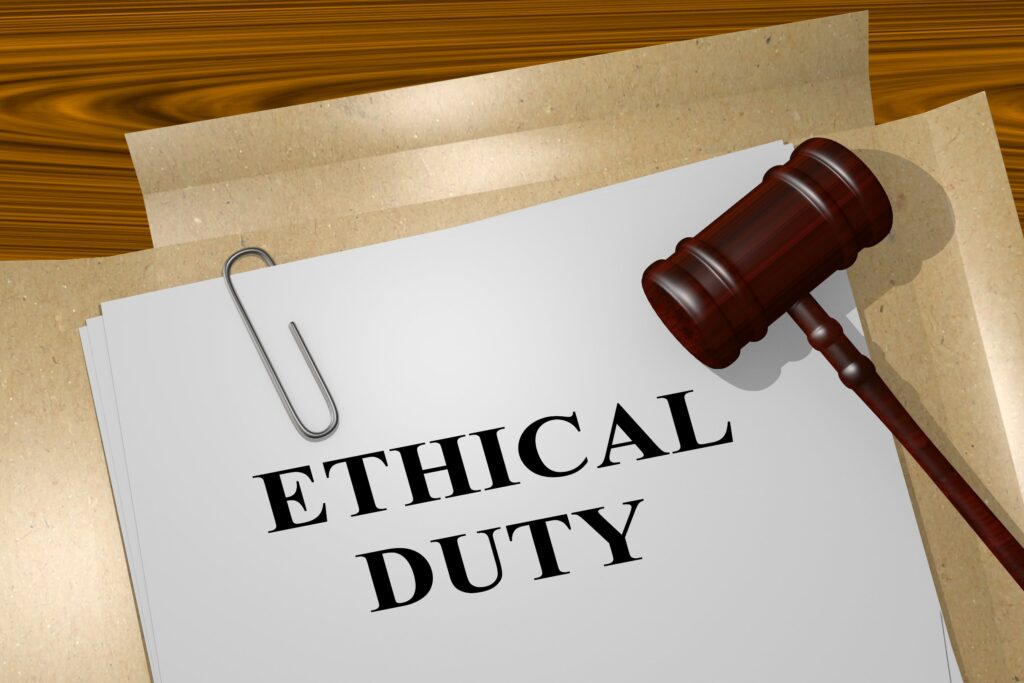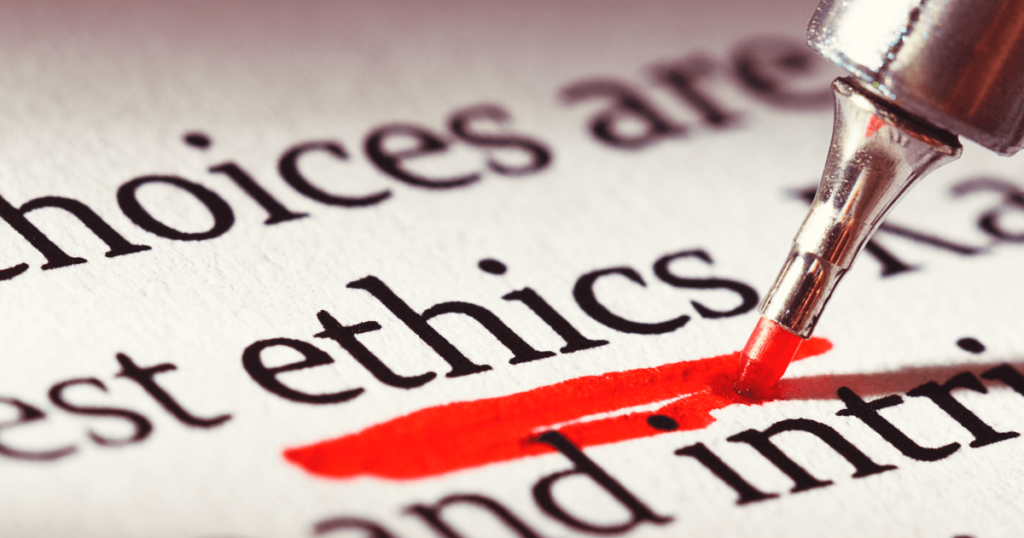Delving into the Moral Compass: Unraveling the Ethical Obligations of Lawyers”
Subtitle: “Legal Ethics and Professional Responsibility: Understanding the Ethical Obligations of Lawyers
KEY TAKEAWAYS:
- Legal ethics and professional responsibility are essential cornerstones of the legal profession.
- Lawyers have the duty to uphold ethical standards while representing their clients zealously.
- Balancing advocacy and ethical conduct ensures fair administration of justice and public trust in the legal system.
- Understanding the principles guiding ethical decision-making is crucial for lawyers’ ethical obligations.
- Confidentiality, loyalty, and honesty are fundamental principles lawyers owe to their clients and the court.
- Maintaining professionalism and civility within the legal community is essential for ethical practice.
- Embracing diversity, inclusivity, and responsible use of technology addresses emerging ethical challenges.
- Continuous learning and self-reflection are vital in maintaining ethical standards.
- Upholding ethical principles safeguards clients’ rights and contributes to a robust justice system.
- By embracing ethical obligations, lawyers uphold the integrity of the legal profession and promote justice in society.
Legal Ethics and Professional Responsibility are foundational pillars that underpin the integrity and credibility of the legal profession. Lawyers, as officers of the court, are entrusted with the crucial duty of upholding ethical standards while zealously representing their clients. This delicate balance between advocacy and ethical conduct ensures the fair administration of justice and fosters public trust in the legal system.
In this article, the focus will be on exploring the multifaceted aspects of Legal Ethics and Professional Responsibility, shedding light on the principles guiding ethical decision-making, the obligations lawyers owe to their clients and the court, and the significance of maintaining professionalism and civility within the legal community. By delving into the rules of professional conduct and examining real-world scenarios, this article aims to provide a deeper understanding of the ethical obligations that lawyers carry throughout their legal careers.
The Foundation of Legal Ethics
By upholding the Rules of Professional Conduct and embracing ethical principles, lawyers contribute to the integrity and credibility of the legal profession, ensuring that justice is served, and clients’ rights are protected. Ethical behavior is not only a legal obligation but also a moral imperative that underpins the foundation of the legal system.
The Rules of Professional Conduct

In the legal profession, adhering to ethical standards is paramount to maintaining public trust and upholding the principles of justice. Legal ethics encompass a set of rules and guidelines known as the Rules of Professional Conduct, which vary by jurisdiction but share common underlying principles. These rules outline the ethical responsibilities that lawyers must follow in their practice.
- Confidentiality: Lawyers are bound to maintain strict confidentiality regarding their clients’ information. This duty ensures that clients can freely disclose sensitive information without fear of it being disclosed to others.
- Conflict of Interest: Lawyers must avoid conflicts of interest that could compromise their ability to provide objective and unbiased representation. This rule ensures that lawyers act solely in their clients’ best interests.
- Competence: Lawyers are required to provide competent representation, possessing the necessary legal knowledge and skills to handle their clients’ cases effectively.
- Diligence: Lawyers must act diligently in representing their clients, promptly responding to inquiries, and advocating diligently on their behalf.
- Zealous Representation: While advocating for their clients’ interests is essential, lawyers must do so within the bounds of the law and maintain their professional integrity.
Principles Guiding Ethical Decision-Making
Ethical decision-making is a fundamental aspect of legal practice. Lawyers often encounter complex situations that require careful consideration of ethical principles:
- Justice and Fairness: Upholding the principles of justice and fairness is a core ethical value in the legal profession. Lawyers must prioritize the pursuit of justice for their clients and society as a whole.
- Honesty and Integrity: Lawyers must always be honest with their clients, the court, and other parties. Integrity is the foundation of trust and credibility in the legal system.
- Independence and Impartiality: Lawyers should remain independent and impartial in their judgment and advice, free from any external pressures that could compromise their objectivity.
- Respect for the Rule of Law: Lawyers play a vital role in upholding the rule of law and promoting respect for legal institutions and processes.
- Safeguarding Confidentiality: Protecting client confidentiality is a critical ethical duty that fosters trust between lawyers and their clients.
Balancing Client Advocacy and Integrity
One of the challenges lawyers face is striking a balance between being zealous advocates for their clients while maintaining ethical integrity. Lawyers must represent their clients’ interests diligently without resorting to unethical or dishonest tactics.
- Fiduciary Duty: Lawyers owe their clients a fiduciary duty, meaning they must act in their clients’ best interests at all times.
- Full Disclosure: Lawyers must provide clients with honest and complete information about their cases, including potential risks and outcomes.
- Ethical Dilemmas: Legal practitioners may encounter ethical dilemmas where the best course of action is not always clear. In such situations, adherence to ethical principles and seeking guidance from legal ethics committees can be valuable.
Ethical Obligations Towards Clients

Adhering to the ethical obligations is crucial for attorneys to maintain their professional integrity and build lasting relationships with their clients. By upholding confidentiality, avoiding conflicts of interest, and providing zealous representation, attorneys can ensure that they are fulfilling their ethical duties towards their clients and upholding the principles of justice in the legal profession.
Confidentiality and Attorney-Client Privilege
Confidentiality and attorney-client privilege are foundational principles in the legal profession, serving to build trust and ensure open communication between attorneys and their clients.
- Duty of Confidentiality: Attorneys have an ethical obligation to keep all information shared by their clients confidential. This duty extends to any information disclosed, whether in person, through documents, or electronically.
- Attorney-Client Privilege: The attorney-client privilege protects communications between clients and their attorneys from disclosure in legal proceedings. This privilege allows clients to speak candidly with their attorneys, promoting effective legal representation.
- Exceptions to Confidentiality: While the duty of confidentiality is strict, there are exceptions, such as when clients provide consent for disclosure or if there is a legal obligation to reveal certain information, such as in cases of preventing harm to others.
Avoiding Conflicts of Interest
Maintaining undivided loyalty to clients is a paramount ethical duty for attorneys. Avoiding conflicts of interest is essential to ensure impartial and unbiased representation.
- Identifying Potential Conflicts: Attorneys must diligently assess whether any conflicts of interest exist before taking on a new client or representing multiple parties in a case.
- Imputed Disqualification: In some instances, if one attorney in a firm is disqualified from representing a client due to a conflict of interest, the entire firm may be disqualified.
- Informed Consent: In certain situations where a conflict of interest arises, informed consent from affected clients can be obtained to proceed with the representation.
Zealous Representation and Loyalty
Attorneys are obligated to zealously advocate for their clients’ interests, acting with loyalty and dedication to achieving the best possible outcomes.
- Duty of Competence: Attorneys must provide competent representation, possessing the required legal knowledge, skill, and diligence to handle clients’ cases effectively.
- Putting Clients First: An attorney’s primary duty is to serve the best interests of their clients, even if their personal opinions or beliefs may differ.
- Avoiding Overzealousness: While zealous representation is essential, attorneys must also be mindful of ethical boundaries and not engage in unethical or deceptive tactics.
Duties to the Court and the Legal System
By adhering to duties to the court and the legal system, all participants contribute to the proper functioning and integrity of the judicial process. Upholding candor, integrity, and respect within the legal arena helps ensure a fair and just legal system for all.
Candor and Honesty in Court Proceedings
One of the fundamental principles of the legal system is candor and honesty in court proceedings. Attorneys, parties, and witnesses all have a duty to be truthful when presenting evidence, making arguments, or testifying in court. This duty extends not only to statements made in court but also to all written and oral communications with the court and other parties involved in the case.
- Truthful Representations: Attorneys must present accurate and complete information to the court and avoid making false or misleading statements. This includes disclosing adverse facts that may weaken their case.
- Duty of Disclosure: Parties have an obligation to disclose all relevant evidence, even if it may not be favorable to their position. Withholding information or engaging in deceptive practices can lead to severe consequences, including sanctions by the court.
- Witness Testimony: Witnesses are bound by an oath to tell the truth when testifying in court. Deliberate perjury, providing false information under oath, is a serious offense that undermines the integrity of the legal system.
Maintaining the Integrity of the Judicial Process
Preserving the integrity of the judicial process is vital to upholding the rule of law and ensuring fair and just outcomes. All participants in legal proceedings must act with integrity and avoid any conduct that could compromise the process.
- Courtroom Decorum: Attorneys, parties, and witnesses should show respect for the court and other participants by maintaining proper courtroom decorum. This includes addressing the judge and others respectfully and refraining from disruptive or disrespectful behavior.
- Preserving Confidentiality: Confidentiality is critical in certain legal matters, such as those involving sensitive information or trade secrets. Lawyers must safeguard their clients’ confidences and not disclose privileged information without proper authorization.
- Avoiding Conflicts of Interest: Attorneys have an obligation to avoid conflicts of interest that could compromise their ability to represent their clients effectively and impartially. Full disclosure of any potential conflicts is essential.
Respecting Court Orders and Rulings
Compliance with court orders and rulings is essential to maintain the authority and effectiveness of the legal system. Failure to adhere to court orders can lead to severe penalties and adversely affect the case.
- Obeying Court Orders: Parties must comply with all court orders, including deadlines, requests for documents, or orders for specific actions. Disregarding court orders can result in sanctions or contempt of court charges.
- Appealing Decisions Properly: If a party disagrees with a court ruling, they should follow the appropriate legal procedures for appealing the decision. Resorting to improper means to challenge a ruling undermines the integrity of the system.
- Respectful Dispute Resolution:*l Parties should engage in good-faith efforts to resolve disputes outside of court through negotiation, mediation, or alternative dispute resolution methods. This approach can lead to more efficient and amicable resolutions.
Professionalism and Civility Among Lawyers
By upholding professionalism, promoting diversity, and fostering a positive legal community, lawyers can collectively elevate the legal profession and uphold the principles of justice and fairness that form its foundation. Embracing these values enhances the reputation of the legal system and strengthens the trust and confidence of the public in the legal profession.
Treating Opposing Counsel with Respect
In the legal profession, professionalism and civility are paramount in maintaining a fair and efficient legal system. One crucial aspect of professionalism is treating opposing counsel with respect and courtesy, regardless of the adversarial nature of legal disputes. Lawyers have a duty to uphold the principles of integrity and respect when interacting with their counterparts, as well as with the court and all parties involved in the case.
Lawyers should maintain open and transparent communication with opposing counsel. Timely responses to correspondence and cooperation in scheduling hearings or depositions demonstrate professionalism and contribute to smoother legal proceedings.
Adhering to court rules and procedures is essential for promoting a respectful environment in the legal arena. This includes arriving punctually for hearings, adhering to time limits, and presenting arguments in a clear and concise manner.
Engaging in personal attacks or disparaging comments about opposing counsel undermines the professional atmosphere and can negatively impact the case’s outcome. Lawyers should focus on legal arguments and avoid unnecessary confrontations.
Promoting Diversity and Inclusion in the Legal Profession
Diversity and inclusion are critical aspects of a thriving legal profession that fosters equal opportunities for all individuals. Embracing diversity not only enhances the representation of various perspectives but also contributes to a more comprehensive and just legal system. Lawyers play a crucial role in promoting diversity and inclusion in the following ways:
- Encouraging Diversity Hiring Practices: Law firms and legal organizations can actively promote diversity by adopting inclusive hiring practices and seeking talent from diverse backgrounds.
- Supporting Diverse Attorneys: Offering mentorship and support to diverse attorneys can help create a more inclusive and supportive legal community.
- Advocating for Equal Representation: Lawyers can advocate for equal representation and opportunities for individuals from marginalized communities, ensuring a fair and just legal system for all.
Fostering a Positive and Collegial Legal Community
A positive and collegial legal community fosters an environment conducive to effective legal representation and collaboration. Encouraging a supportive legal culture benefits both lawyers and their clients:
- Professional Development and Continuing Education: Engaging in ongoing professional development and continuing legal education helps lawyers stay updated on legal developments and best practices, contributing to a more competent legal community.
- Mentoring New Attorneys: Experienced lawyers can take on mentoring roles to guide and support new attorneys, helping them develop professionally and ethically.
- Pro Bono Work and Public Service: Lawyers can contribute to the legal community by participating in pro bono work and public service initiatives, ensuring access to justice for vulnerable populations.
Avoiding Unethical Conduct and Disciplinary Actions
Being vigilant about potential red flags, understanding the consequences of unethical conduct, and seeking guidance when faced with ethical dilemmas, professionals can uphold the highest ethical standards and avoid disciplinary actions. Embracing ethical conduct not only protects individuals from legal and reputational damage but also fosters a culture of trust and respect within their respective professions.
Recognizing Red Flags of Potential Ethical Violations
Ethical conduct is a cornerstone of any profession, guiding individuals in upholding their moral obligations and responsibilities. Recognizing red flags of potential ethical violations is essential to maintaining professional integrity and avoiding disciplinary actions. Here are some key red flags to watch out for:
- Conflict of Interest: A conflict of interest arises when personal interests interfere with professional duties. Failing to disclose conflicts or making decisions for personal gain can lead to ethical breaches.
- Lack of Transparency: Concealing information from clients, colleagues, or stakeholders can raise concerns about trustworthiness and professional ethics.
- Misrepresentation or Fraud: Providing false or misleading information, whether in documents or communications, can lead to severe ethical consequences.
- Breach of Confidentiality: Sharing confidential information without authorization violates trust and confidentiality obligations.
- Inadequate Informed Consent: Failure to obtain proper informed consent from clients or patients before conducting certain actions can be ethically problematic.
- Overlooking Safety Protocols: Ignoring safety protocols or cutting corners to save time or money can lead to ethical dilemmas and potential harm to others.
The Consequences of Breaching Professional Responsibility

Ethical breaches can have severe consequences for individuals and their careers. The repercussions of unethical conduct can include:
- Disciplinary Actions: Professional boards or governing bodies may initiate disciplinary actions, such as suspensions or revocations of licenses or certifications.
- Damage to Reputation: Ethical violations can tarnish one’s professional reputation, leading to loss of trust from clients, colleagues, and employers.
- Legal Liability: Unethical conduct can expose individuals to legal liabilities, including lawsuits and financial penalties.
- Career Setbacks: Ethical breaches may impede career progression and limit opportunities for professional growth.
- Loss of Employment: In some cases, serious ethical violations can lead to termination of employment.
Seeking Guidance and Resources for Ethical Dilemmas
When faced with ethical dilemmas, seeking guidance and utilizing available resources can help individuals navigate complex situations and make ethical decisions:
- Ethics Committees and Advisors: Many professions have ethics committees or advisors who can provide guidance and support when facing ethical challenges.
- Code of Ethics and Standards: Familiarizing oneself with the code of ethics and professional standards of the relevant profession can serve as a compass in making ethical decisions.
- Ethics Training and Education: Participating in ethics training and continuing education programs can enhance ethical awareness and decision-making skills.
- Consulting Peers and Mentors: Seeking advice from experienced colleagues or mentors can provide valuable insights when grappling with ethical dilemmas.
- Maintaining Open Communication: Encouraging open communication within the organization can help address ethical concerns before they escalate.
Emerging Ethical Challenges in the Digital Age
In navigating the emerging ethical challenges, legal professionals must stay informed about evolving technology and ethical guidelines. Continuous education, robust internal policies, and adherence to professional codes of conduct will enable lawyers to maintain their ethical integrity in the digital age. Embracing ethical practices not only strengthens the legal profession’s reputation but also enhances the trust and confidence of clients and the public at large.
Ethical Implications of Technology in Legal Practice
As the world becomes increasingly interconnected, the legal profession faces new ethical challenges in the digital age. Technology has transformed how legal professionals conduct their work, communicate with clients, and manage sensitive information. While these advancements offer efficiency and convenience, they also raise ethical concerns that demand careful consideration.
- Confidentiality and Data Security: The use of digital tools and cloud-based systems for storing and sharing legal documents brings concerns about client confidentiality and data security. Legal practitioners must take proactive steps to safeguard client information from unauthorized access, breaches, or cyberattacks.
- Communication and Attorney-Client Privilege: With email and other electronic communication platforms becoming common in legal practice, maintaining attorney-client privilege is crucial. Ensuring that confidential discussions remain protected from interception or exposure is a key ethical responsibility.
- Electronic Discovery and ESI Management: The digital age has seen a surge in electronically stored information (ESI) in legal proceedings. Ethical issues arise concerning the collection, preservation, and use of electronic evidence during discovery. Legal professionals must adhere to e-discovery guidelines and avoid spoliation of evidence.
- Artificial Intelligence and Legal Decision-Making: The integration of artificial intelligence (AI) in legal research and analysis raises ethical concerns about the accuracy and biases of AI algorithms. Lawyers must be vigilant in critically evaluating AI-generated insights and ensuring fairness in their application.
Social Media and Online Professionalism
Social media has revolutionized communication and networking, but it has also introduced unique ethical challenges for legal professionals in maintaining online professionalism:
- Conflicts of Interest and Social Media Connections: Lawyers must be cautious about accepting social media connections from clients, witnesses, or opposing parties, as it may create potential conflicts of interest or inadvertent disclosure of confidential information.
- Social Media Content and Reputation: Attorneys must be mindful of their social media posts and ensure they do not compromise their professional reputation or the perception of their impartiality.
- Maintaining Client Confidentiality: Even on social media platforms, lawyers must never disclose client information or details of ongoing cases, as it violates confidentiality obligations.
Safeguarding Client Data and Privacy

As technology facilitates the storage and transmission of vast amounts of data, lawyers have a paramount duty to protect client data and privacy:
- Cybersecurity Measures: Implementing strong cybersecurity protocols, such as encryption, secure authentication, and access controls, is essential in safeguarding client data from cyber threats.
- Data Minimization and Retention Policies: Legal professionals should only collect and retain the minimum amount of client data necessary for a case. Developing data retention policies ensures data is not kept longer than required.
- Remote Work Challenges: With remote work becoming more prevalent, lawyers must ensure secure communication and protect client data when working outside traditional office settings.
Balancing Ethics and Advocacy: Navigating Difficult Situations
In the legal profession, attorneys often find themselves facing challenging ethical dilemmas while advocating for their clients’ interests. The delicate balance between ethics and advocacy is a fundamental aspect of practicing law, requiring attorneys to make difficult decisions that may impact their clients, the legal system, and their own professional integrity. Representing unpopular clients or causes, handling difficult clients, and conducting ethical settlement negotiations are all critical aspects of maintaining professional integrity and upholding the values of the legal profession. By prioritizing ethical considerations while advocating for their clients, attorneys can play a pivotal role in upholding justice and fairness in the legal system.
Representing Unpopular Clients or Causes
One of the most formidable tests of an attorney’s ethical fortitude is representing clients or causes that may be viewed unfavorably by society or face strong opposition. This can include individuals accused of heinous crimes, controversial political figures, or clients involved in contentious and divisive issues. While it is essential for every individual to have legal representation and access to justice, taking on such cases can raise ethical concerns for attorneys.
- Presumption of Innocence: One core principle of the legal system is the presumption of innocence. Regardless of public opinion, attorneys must uphold their ethical duty to provide a zealous defense and protect their clients’ rights.
- Avoiding Personal Bias: Representing unpopular clients requires attorneys to set aside their personal beliefs and remain impartial in their approach to the case.
- Confidentiality and Loyalty: Upholding the duty of confidentiality is paramount, even when representing clients whose actions or beliefs may be met with public disapproval.
Handling Difficult Clients and Managing Expectations
Dealing with difficult clients is a common challenge for attorneys, especially when clients are emotional, demanding, or unrealistic about their case’s potential outcome. It is crucial for attorneys to maintain professionalism and manage client expectations effectively.
- Clear Communication: Establishing open and honest communication with clients from the outset helps manage expectations and ensures clients understand the complexities of their case.
- Setting Realistic Goals: Attorneys must provide clients with a realistic assessment of their case, the potential challenges, and possible outcomes to avoid unrealistic expectations.
- Ethical Boundaries: While advocating for clients’ interests is vital, attorneys must also be mindful of ethical boundaries and avoid engaging in dishonest or unethical practices to achieve specific results.
Ethical Considerations in Settlement Negotiations
Settlement negotiations play a significant role in resolving legal disputes efficiently and avoiding lengthy court battles. However, attorneys must carefully navigate ethical considerations during these negotiations to ensure the best interests of their clients are served.
- Full Disclosure: Attorneys are ethically obligated to disclose all relevant information during settlement negotiations to promote transparency and fairness.
- Avoiding Coercion: Coercing or pressuring parties into accepting settlements that may not be in their best interests is an ethical violation. Attorneys should encourage clients to make informed decisions without undue influence.
- Conflicts of Interest: Attorneys must be vigilant in identifying and addressing conflicts of interest that may arise during settlement negotiations to protect their clients’ rights.
Maintaining Ethical Standards Throughout a Legal Career
Ethical conduct is at the core of the legal profession, serving as the bedrock of trust and credibility between lawyers, clients, and the justice system. Upholding ethical standards is not only a requirement but a moral duty for legal professionals. In this article, we delve into the various aspects of maintaining ethical standards throughout a legal career, focusing on continuing legal education, self-reflection, and the unwavering commitment to upholding legal ethics as a lifelong duty.
Continuing Legal Education and Professional Development
Legal professionals must stay abreast of the ever-evolving legal landscape and professional standards. Continuing legal education (CLE) is a vital aspect of a lawyer’s career, serving as a platform for ongoing learning and knowledge enhancement. By participating in CLE programs, attorneys can deepen their understanding of new laws, regulations, and legal precedents, ensuring they provide accurate and informed counsel to their clients.
- Legal Updates and Changes: The legal field is dynamic, with laws and regulations subject to frequent changes. Engaging in CLE allows lawyers to keep pace with these developments and implement the most current legal practices in their work.
- Enhanced Expertise: Specialized CLE programs enable attorneys to develop expertise in specific areas of law, making them more effective advocates for their clients in complex legal matters.
- Professional Networking: CLE events offer opportunities for lawyers to network with peers, share insights, and collaborate on challenging cases. Networking fosters a sense of community and professional support, which contributes to ethical growth.
Self-Reflection and Personal Growth in Professional Responsibility
The legal profession demands not only proficiency in legal knowledge but also a strong sense of professional responsibility and moral integrity. Lawyers must continuously engage in self-reflection to assess their ethical choices and conduct.
- Ethical Dilemmas: Lawyers often encounter complex ethical dilemmas in their practice. Engaging in self-reflection helps them identify and navigate these challenges while adhering to the highest ethical standards.
- Moral Values: By evaluating their moral values, lawyers can align their professional conduct with their personal principles, fostering a strong ethical foundation in their careers.
- Peer Feedback: Seeking constructive feedback from peers and mentors provides valuable insights into areas of improvement, helping lawyers hone their ethical decision-making skills.
Commitment to Upholding Legal Ethics as a Lifelong Duty
Maintaining ethical standards is not a one-time accomplishment but an ongoing commitment throughout a legal career. Lawyers must recognize their responsibility to uphold legal ethics diligently.
- Client Confidentiality: Protecting client confidentiality is a paramount ethical duty. Lawyers must ensure sensitive information remains privileged, preserving the trust clients place in them.
- Conflict of Interest: Avoiding conflicts of interest is essential to prevent compromised representation. Lawyers must meticulously assess potential conflicts and take appropriate measures to maintain impartiality.
- Integrity and Honesty: Upholding integrity and honesty in all professional interactions is fundamental. Lawyers must be transparent with clients, colleagues, and the court to maintain credibility.
Thus, maintaining ethical standards throughout a legal career is an ongoing journey that requires dedication to learning, self-reflection, and a steadfast commitment to uphold legal ethics. By engaging in continuing legal education, lawyers stay current with legal developments, ensuring they provide informed and ethical representation. Regular self-reflection allows lawyers to align their personal values with their professional responsibilities, fostering growth in ethical decision-making. Upholding ethical standards is not a transient obligation but a lifelong duty that forms the cornerstone of a reputable and respected legal career.
In the ever-evolving legal landscape, upholding Legal Ethics and Professional Responsibility remains a paramount duty for lawyers seeking to excel in their profession. The principles of confidentiality, loyalty, and honesty towards clients, coupled with respect for the court and opposing counsel, form the bedrock of ethical conduct. By embracing diversity and inclusivity and leveraging technology responsibly, lawyers can navigate emerging ethical challenges in the digital age.
With a commitment to continuous learning and self-reflection, legal practitioners can aspire to maintain ethical standards that reflect the highest ideals of the legal profession. Upholding these ethical principles not only safeguards the rights and interests of clients but also contributes to the robustness of the justice system as a whole. By embracing the obligations of legal ethics and professional responsibility, lawyers play a crucial role in ensuring the fairness and integrity of the legal profession, fortifying its position as a bastion of justice in society.




